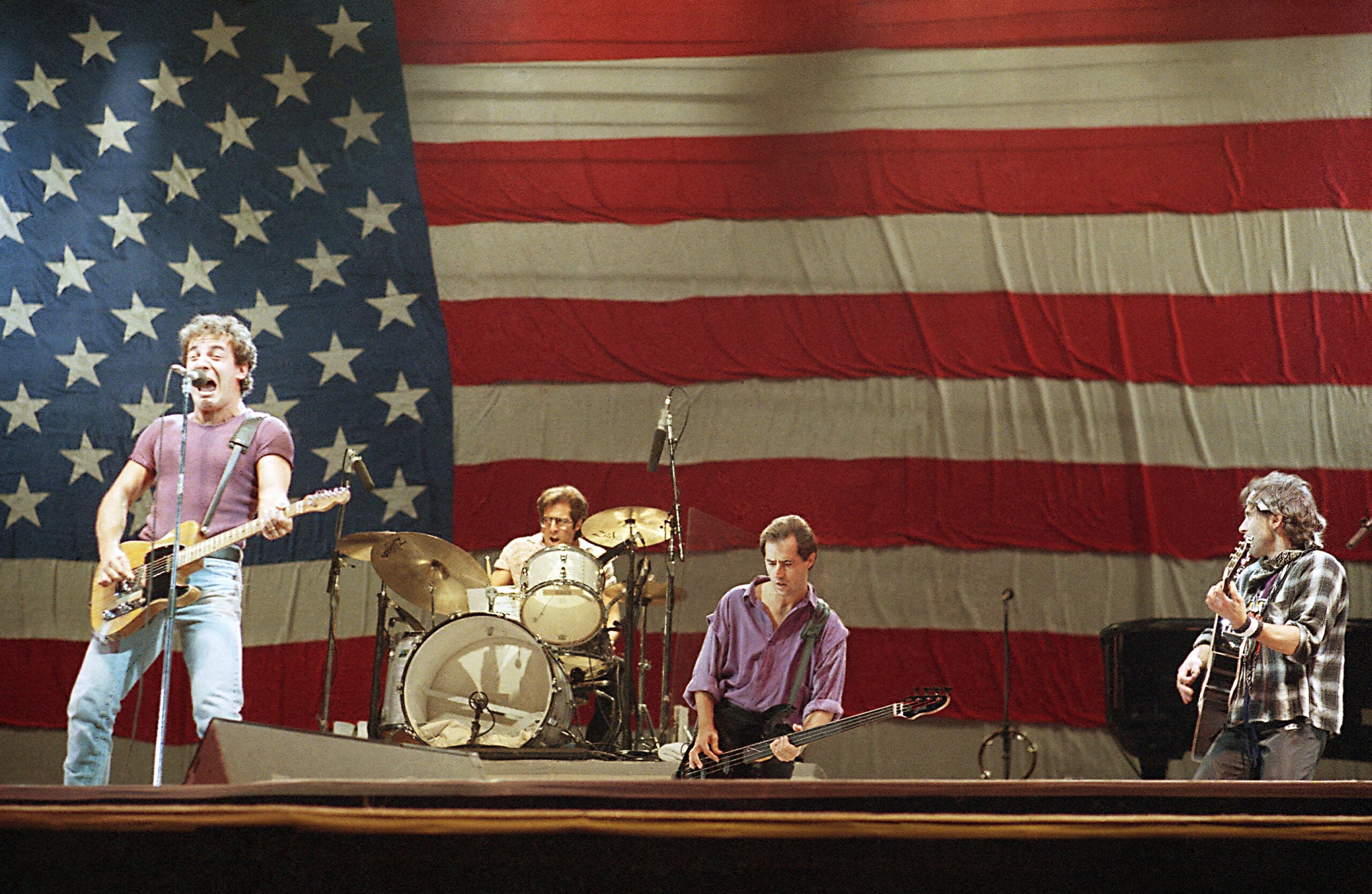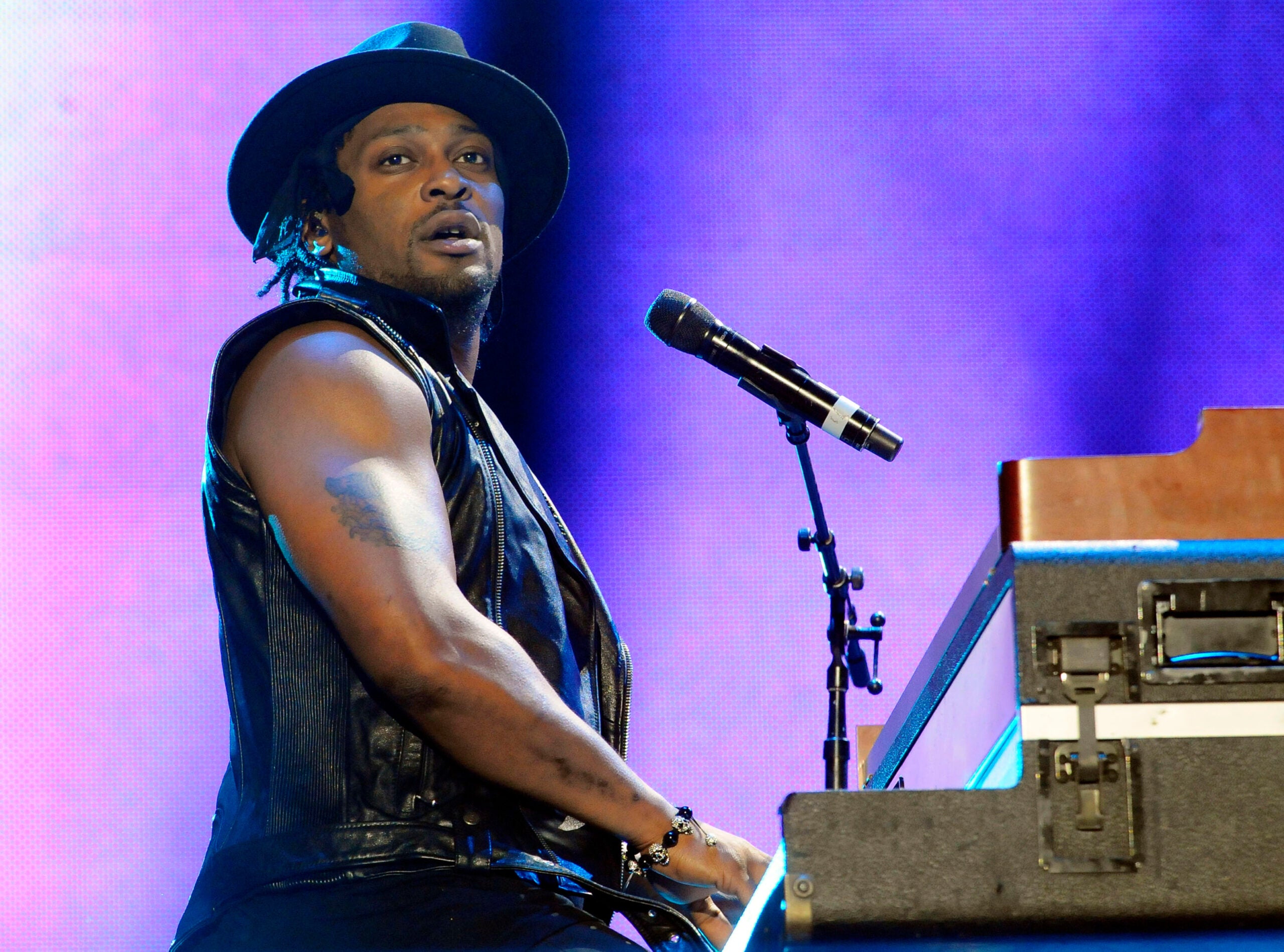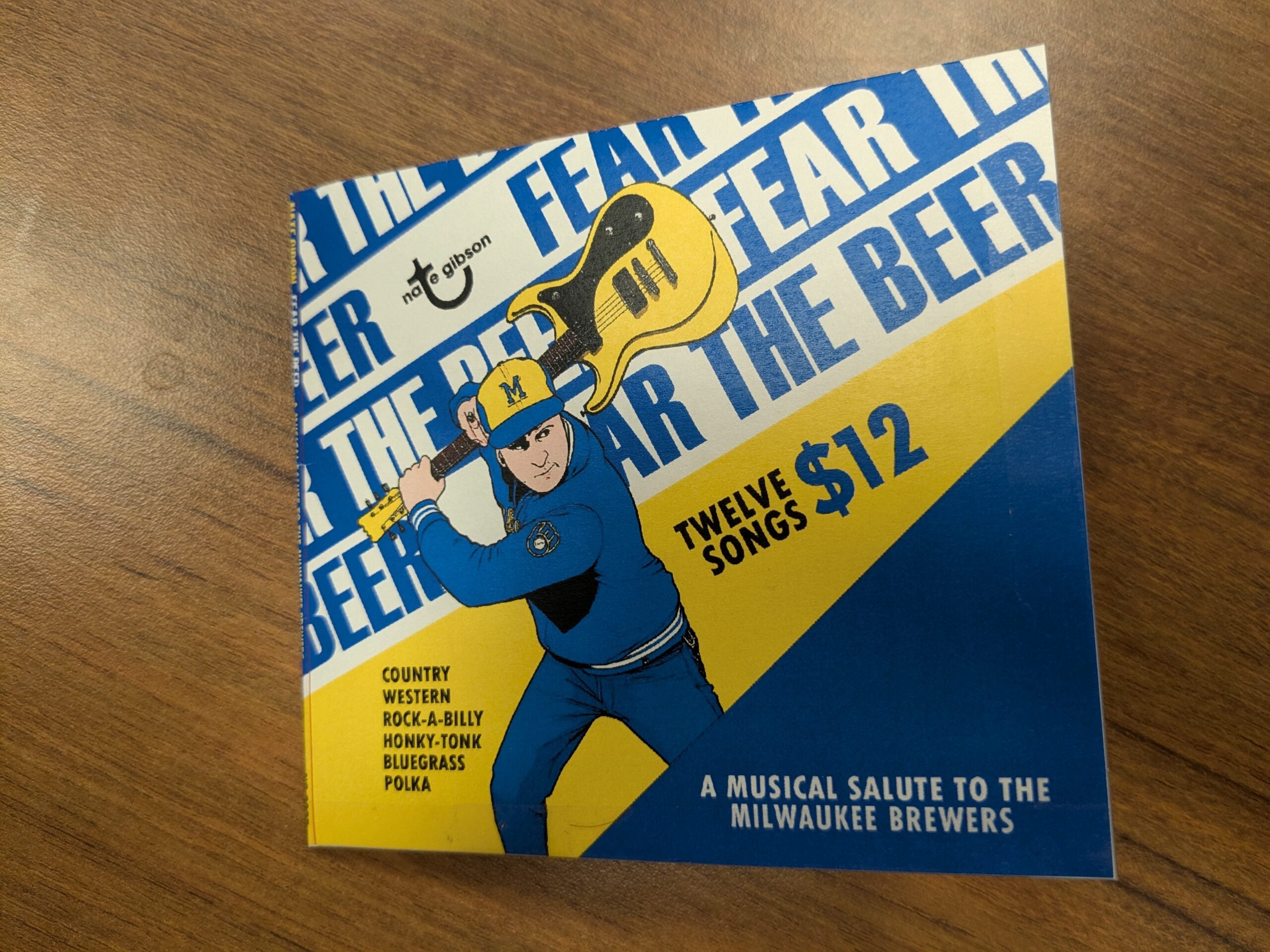Steven Hyden grew up in Appleton listening to Bruce Springsteen. He recently remembered finding a cassette copy of “Born in the U.S.A.” in his dad’s car.
“There was something about the cover (that) just called out to me,” he said in a recent interview on WPR’s “Wisconsin Today.”
He said hearing the first few notes of the title track at 6 years old was a “big bang moment” for him. It launched a lifetime of listening to and appreciating “Born in the U.S.A.”
News with a little more humanity
WPR’s “Wisconsin Today” newsletter keeps you connected to the state you love without feeling overwhelmed. No paywall. No agenda. No corporate filter.
“I’ve loved this album pretty much as long or longer than anything in my life,” he said.
Now 40 years later, Hyden is a music critic who writes for Uproxx and has published several books about music. He just released a new book looking at the legacy of “Born in the U.S.A.”
In the book, Hyden wrote that this album changed rock music. But more so, he said it struck a chord with American culture and politics in a way few albums have since.
“The tape I found in my dad’s car is a landmark in American pop culture, an all-time bestseller that placed Bruce Springsteen at an elevated position more analogous to a national monument than a pop star,” Hyden wrote. “It influenced how music sounded in the era, but more than that, it informed the national political discourse as well.”
When asked what the album means to him now, Hyden said it’s just as relevant as ever.
“I think that this record has a lot to say about the state of the country, how it has changed in the last 40 years,” he said. “The reason I wanted to write about it is that, along with being a great record, there’s a lot of richness to the story (of this album) and what it represents.”
Here’s what Hyden has to say about a few of the album’s standout tracks, based on his interview with “Wisconsin Today” and his new book, “There Was Nothing You Could Do: Bruce Springsteen’s ‘Born In The U.S.A.’ and the End of the Heartland.”
‘Born in the U.S.A.’
Steven Hyden: The song “Born in the U.S.A.” is such a slam-bang of an opener for a record. It really hits you in the face. Just the sound of the drums, the synthesizer, Bruce’s voice, everything in the package.
There’s a long history with the title track of people reading it in a way that doesn’t exactly line up with what Bruce Springsteen intended. If you look at the lyrics of that song, he’s writing about this disaffected Vietnam veteran who comes back home, and he has been rejected by his country. There’s a feeling of betrayal that courses through that song. And anger and rage. But the music is very uplifting — it’s anthemic. The chorus almost demands that you shout along with it.
You did have political actors, (such as) the Reagan campaign that year, that were knowingly co-opting that song. There was an attempt in political circles to wrap an arm around Bruce Springsteen because he was such a popular star. And if you’re trying to appeal to young people, this was an easy way to do it.
‘Glory Days’
SH: People hear that song at baseball games, and they think, “Oh, what a nice song about nostalgia.” And then you dig deeper, look at the lyric sheet and it’s like, he’s talking about how depressing it is to end up on a barstool and talking about how great your life used to be. It’s a song against nostalgia, not endorsing nostalgia.
That sort of “sad songs that sound happy” formula just gets repeated throughout that record. And Bruce didn’t invent that formula. Lots of songwriters have used that, but it’s very effective. He uses it better than most.
‘Dancing in the Dark’
SH: So that was a song that came very late in the process. The record was basically done, and Bruce Springsteen’s manager Jon Landau looked at the record and felt like it needed one more song. The thing with this record was that it was really conceived to be the record that would push Bruce Springsteen over the top. Landau felt like, “We just need one more song that’s going to be a big hit, and that’s going to take us to the promised land.”
Bruce was very frustrated by this because he wrote so many songs during this period, many of which didn’t come out until years later on a boxset called “Tracks” at the end of the 1990s. He had written so many songs, he felt like he was done. He had been working on this for years. So he, very reluctantly and I think somewhat angrily, wrote this song, “Dancing in the Dark.”
It’s a very poppy song. If you’ve seen the music video, Bruce is smiling and dancing with Courtney Cox. It’s like all joy and rainbows and everything. But if you look at the lyrics, it’s a very bitter song: “I want to change my clothes, my hair, my face. I’m not satisfied with where I am in life.”
‘My Hometown’
SH: The seventh and final single. It topped out at No. 6. But it is No. 1 in my heart. Like “Born in the U.S.A.,” it is a thesis track. Only the first number on side one is about coming home, and this one is about leaving it.
When I go back to my own hometown, I usually take a late-night drive past the boyhood home my mother has long since moved out of, and I listen to this song. But I don’t think about how the old neighborhood now looks like the worn-out ghost town that Bruce writes about. What I ponder is my journey with this record. In the first verse, the narrator is a kid in his dad’s car. In the last verse, he’s the dad taking his own son for a drive.
And that’s exactly my arc with “Born in the U.S.A.” I started out as a child playing it in my father’s car, and now I’m a father who plays it for my children in my car. My love for this album has not changed. What’s changed is everything else.
Wisconsin Public Radio, © Copyright 2025, Board of Regents of the University of Wisconsin System and Wisconsin Educational Communications Board.






